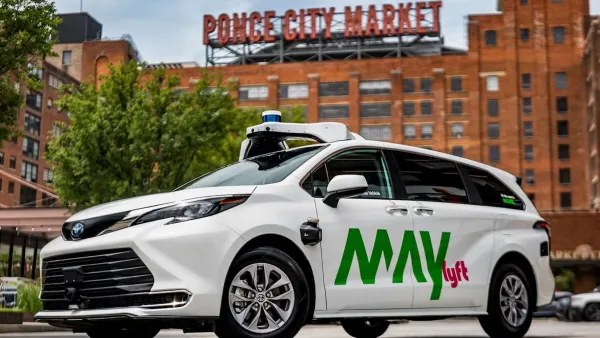The era of cheap, on-demand services is coming to a close as unprofitable startups face the realities of capitalism.

Writing in The Atlantic, Derek Thompson warns of the “end of the millennial lifestyle subsidy,” that blissful era when Uber rides across town cost a few dollars and you could have a meal delivered from any restaurant for a nominal extra fee. “Almost each time you or I ordered a pizza or hailed a taxi, the company behind that app lost money. In effect, these start-ups, backed by venture capital, were paying us, the consumers, to buy their products.”
Yet investors continued to support companies that grew their user bases while losing money. “As long as money was cheap and Silicon Valley told itself the next world-conquering consumer-tech firm was one funding round away, the best way for a start-up to make money from venture capitalists was to lose money acquiring a gazillion customers.”
Now, those companies are facing a reckoning. “These start-ups weren’t nonprofits, charities, or state-run socialist enterprises. Eventually, they had to do a capitalism and turn a profit.” By 2022, “Rising interest rates turned off the spigot for money-losing start-ups, which, combined with energy inflation and rising wages for low-income workers, has forced Uber, Lyft, and all the rest to make their services more expensive.”
Meanwhile, improved labor market conditions mean that workers have more leverage over employers. “Today, job openings are historically plentiful and nominal wages are rising fastest for low-income workers.”
It turns out, Thompson concludes, “The golden age of bougie on-demand urban-tech discounting has come to a close.” We may now have to go back to paying the real cost of products and services.
FULL STORY: Why Urban Life Suddenly Got Way More Expensive

Planetizen Federal Action Tracker
A weekly monitor of how Trump’s orders and actions are impacting planners and planning in America.

Chicago’s Ghost Rails
Just beneath the surface of the modern city lie the remnants of its expansive early 20th-century streetcar system.

Amtrak Cutting Jobs, Funding to High-Speed Rail
The agency plans to cut 10 percent of its workforce and has confirmed it will not fund new high-speed rail projects.

Ohio Forces Data Centers to Prepay for Power
Utilities are calling on states to hold data center operators responsible for new energy demands to prevent leaving consumers on the hook for their bills.

MARTA CEO Steps Down Amid Citizenship Concerns
MARTA’s board announced Thursday that its chief, who is from Canada, is resigning due to questions about his immigration status.

Silicon Valley ‘Bike Superhighway’ Awarded $14M State Grant
A Caltrans grant brings the 10-mile Central Bikeway project connecting Santa Clara and East San Jose closer to fruition.
Urban Design for Planners 1: Software Tools
This six-course series explores essential urban design concepts using open source software and equips planners with the tools they need to participate fully in the urban design process.
Planning for Universal Design
Learn the tools for implementing Universal Design in planning regulations.
Caltrans
City of Fort Worth
Mpact (founded as Rail~Volution)
City of Camden Redevelopment Agency
City of Astoria
City of Portland
City of Laramie





























